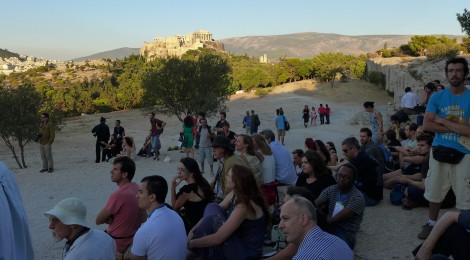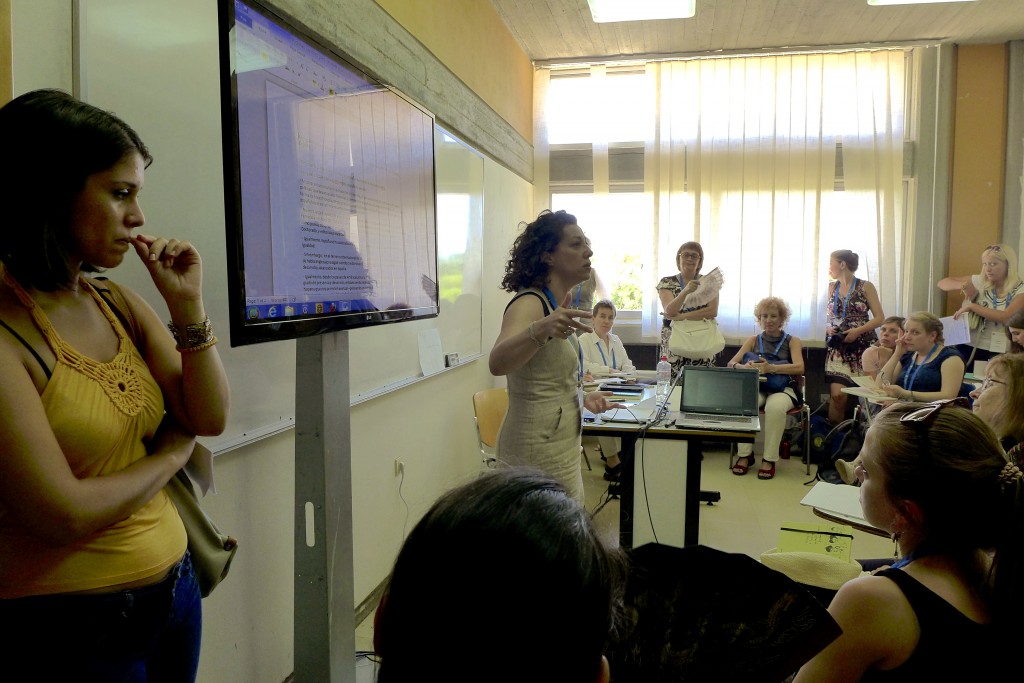
The Future of Philosophy – II
Breaking the Philosopher’s Shell
The tendency towards introversion, of philosophy as a discipline and philosophers as a community, is exacerbated by the isolating structures of the modern academy, which has widened the chasm between the philosopher–self-imprisoned in the academic ivory tower, and hard ground realities of the conditions of human life beyond these walls.
In order to avert the current crisis, many conscientious philosophers have attempted to engage in interdisciplinary thinking. However, in most cases, instead of applying the strengths of philosophical analysis to the findings of other disciplines, philosophers have tended to adopt the conceptual ambiguity of other humanities disciplines. This has served to further dilute the perception of the worth of philosophy in other disciplines.
The Congress suffered greatly due to this trend. Like Habermas, several other speakers either presented a recycled narrative of borrowed ideas or seemed disconnect from broader contemporary debates–in most cases both. Dorothea Frede, an adjunct professor at the University of Berkely, California, presented a paper on “Aristotle on the Importance of Rules, Laws and Institutions.” Delivered at the historic site of Aristotle’s Lyceum, her presentation of the topic was reminiscent of a first year undergraduate philosophy lecture, and her knowledge of the discourse on rules, laws and institutions was superficial at best. Another paper presented at the same panel, “The Strengths and Challenges of Aristotle’s Ethics,” by Theodore Scaltsas, professor at the University of Edinburgh advanced an interesting (but often heard) thesis on the role psychology in ethics. The argument failed in its heavy reliance on the superficial presentation of well-used case-studies from experimental research in behavioral sciences.
Again, as with Habermas, Scaltsas’ shallow engagement with disciplines beyond philosophy not only made the talk amateurish at best, but also signaled a dangerous cocktail of arrogance and ignorance that seems to be a hallmark of a large proportion of philosophical debates today. These discussions try to force together the two branches of the philosopher’s fork by propelling the same old canon into a new world. The outcome of this ill-fated experiment is, of course, null and void and partly responsible for the current malaise of the discipline.
Granted, expecting philosophers to possess specialized knowledge in every field that their enquiry touches upon is a stringent and likely impossible demand (thought not entirely unreasonable). Nonetheless, if philosophers choose to engage in other fields of discourse and borrow language from other disciplines and methodologies, without even the most basic understanding of the context in which these ideas function, not only will philosophical argumentation suffer, but it will be difficult, as McIntyre asserts, to expect non-philosophers to take philosophical methods seriously.
The central problem is this: While a methodological rigor and precision persists in philosophy departments, philosophy departments are largely disconnected from the the world–so their rigor is rarely tested against the constraints and boundaries of practical experience. The problem is not so much intertwined with either the practical utility of philosophical discourse or its contemporary relevance. Instead, it is related to the coherence and descriptive capacity/potential of philosophical ideas. Philosophy, in its current academic form is something of an anachronistic dinosaur. Philosophers are neither observing the world as it is today, nor are they undertaking careful analysis of the world as it was. They are simply circulating around a small bevy of privileged ideas, ad nauseum.
On the other hand, while the discourse in other fields of the humanities offer robust and dynamic engagements of issues of contemporary and historical human concern (at the social, individual and at times spiritual level) little attention is given to pinning down terms and describing and understanding fundamental concepts in a precise and rigorous manner. As a result, there is little clarity on the purport of the meaning and ontological context in which discussions take place. This lack of clarity has considerable consequences on the communication and exchange of ideas. The great advantage of philosophical precision is that people can communicate clearly with each other (verbally and/or otherwise). However, philosophers are speaking only to themselves (and within this sub-group largely only to those philosophers with whom they share agreement). Where there is precision, there is precious little engagement. Where there is engagement, there is no precision.
A Philosopher’s Crisis is Everyone’s Crisis
The lack of diversity amongst philosophers and within the philosophical canon, as well as the isolation and narrow focus of philosophical methodologies has resulted in a net loss of rigorous inquiry. As it turns out, the crisis in philosophy might actually be a criss for all disciplines, as much as it is a crisis for all peoples and societies.
As McDowell suggests, what philosophy offers the world that is irreplaceable is a variety of approaches to thinking and understanding. In its totality, across history and time, it offers people alternate means of considering almost every aspect of life. These approaches are constructed through a multiplicity of forms of argumentation, which include ontological positions, metaphysical and epistemic beliefs and much more. The central challenge for today’s philosopher is that the language of the contemporary academy remains unable to harness the potential of this diversity.
What events like the Congress contribute to the shaping philosophy’s future is uncertain as the Congress reflects the challenges of the discipline as much as it reflects the hidden opportunities. However, such mass meetings often give people the opportunity to examine the bigger picture and contemplate future possibilities in the face of current realities. If philosophers engage in this reflection, beyond cosmetic concerns, then the future of philosophy remains bright.
The path that academic philosophy takes will ultimately depend on the path of academic philosophers. Academic philosophers are at a fork in the road. Current understandings of Philosophy and the canons that support it have reduced the academy (and thereby the academic philosopher) to a locus of the guardianship of outdated ideas. There is a natural conflict between critical thinking and such defensive postures, genealogies and methodologies. If the traditional canon is saved, there is no doubt it will come at the cost of academic philosophy. If academic philosophy survives, its canon will be unrecognizably transformed in the next half century.
The series ends here.
Pages: 1 2



